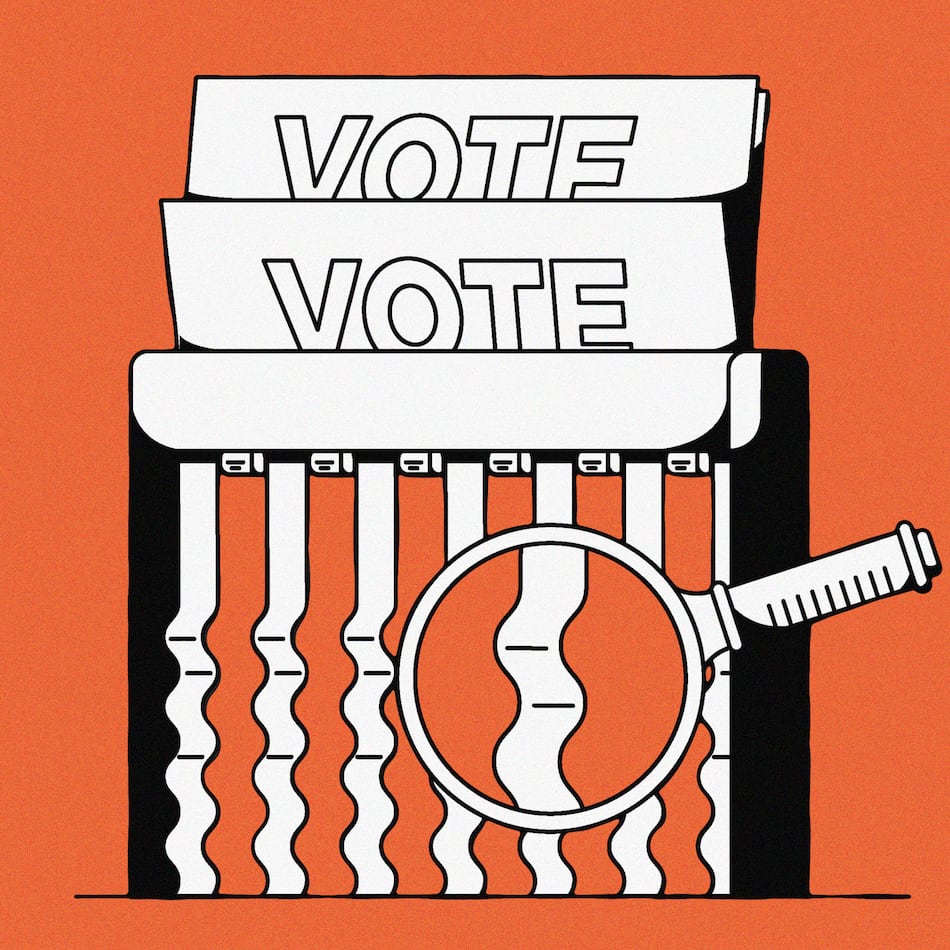It may be a scorching mid-July, but Atlanta small business owner Angela Hawkins is already planning for the holiday shopping season — and she’s not sure what it will cost to get her products to market.
There’s been a new round of tariffs proposed on more than 20 countries, including major trading partners Japan and Korea, along with a new proposed tariff on copper to take effect Aug. 1. And the U.S. continues to threaten higher tariffs on key trading partner China, as it seeks to negotiate deals.
For Hawkins and her Atlanta-based bamboo sheet and pajama company Bamblu, the holidays are like the Super Bowl.
The holidays are “the time that many of us small businesses would make 50% of our revenue,” Hawkins said during a tariff webinar Wednesday. “At this point, we don’t know if that’s even a possibility this year.”
She doesn’t know if she’ll be able to get inventory in time. Hawkins gets her bamboo fabric from China. She has looked for alternatives to manufacture in the U.S., but “was not able to find anything that would allow me to sell at a reasonable price to my customers,” she said.
“I could have product in production over the next couple of months, and when it arrives at the port, I don’t know what I’m going to have to pay for that. Therefore, I don’t know what my return on investment is going to be,” Hawkins said. “So it’s just a very difficult time for small businesses to plan and to accurately execute.”
She’s already put one product line on hold because of tariff pain.
“All the things that require us to be a sound business are up in the air because we don’t know what tariff decisions are going to be on the docket next month,” Hawkins said.
Last month, U.S. companies signaled a slight softening of confidence “as the unpredictable impact of tariff and trade policies continued to dominate the outlook,” according to the latest Business Outlook survey data from financial insights firm S&P Global. Business activity is expected to increase, but profits are set to grow at their weakest pace since October 2023, the report said.
Roger Tutterow, economist and professor at Kennesaw State University, said if newly proposed tariffs against South Korea and Japan do go into effect it could hurt Georgia companies that source materials from abroad or are importers.
But tariffs’ effect on consumer prices is harder to forecast, Tutterow said. Though import taxes are a form of a consumption tax and raise prices, a 20% tariff might not translate into a 20% price increase.
“I think that there’s been a lot said about it without people fully acknowledging that the transmission of a tariff to a consumer price is a very nuanced process,” Tutterow said.
Credit: Miguel Martinez-Jimenez
Credit: Miguel Martinez-Jimenez
Part of the cost of a tariff could be borne by the producer of the item, part by the consumer. The foreign exchanges and the value of the dollar can also impact how tariffs affect prices, according to Tutterow.
Consumers’ pocketbook concerns also affect how much companies are willing to raise prices. A survey by online shopping rewards app Smarty found nearly a third of consumers are being more selective about purchases because of budget constraints, while a quarter plan to buy more to avoid price increases in the future.
“The tariff concerns have created a unique dynamic where shoppers are simultaneously being more budget-conscious, while also looking to stock up on items they expect to get hit with price increases,” Smarty CEO Vipin Porwal said in a written statement.
President Donald Trump says the tariffs are meant to balance what he views as trade disparities between the U.S. and other countries, and a tool to bring manufacturing back to American shores. But Tutterow said 10-20% tariffs would likely not be a high enough tax to “reshore production that is already abroad and in place. At the margin, could it influence whether a company increases their domestic production versus foreign? Perhaps.”
“I think what it’s going to do is it’s going to remind companies that you want to have multiple supply chains,” he said.
The Japanese Chamber of Commerce of Georgia said it is “closely monitoring the potential impact” of the proposed tariffs on Georgia businesses.
“While we understand the administration’s intent to address trade imbalances, imposing tariffs on imports from Japan could have unintended consequences — particularly for Georgia-based companies that rely on global supply chains in sectors such as automotive and manufacturing,” the Japanese chamber said in a written statement. “An increase in tariffs may lead to higher costs for both consumers and companies, potentially affecting regional competitiveness and job growth.”
Jae Kim, president of the Southeast U.S. Korean Chamber of Commerce, said Korean companies that have set up manufacturing plants in the Southeast “need to buy things from Korea — from raw materials to machinery to many parts that go into making U.S. manufacturing great again.”
“So they’re concerned about the layers of tariffs,” including so-called reciprocal tariffs as well as automotive, steel and aluminum tariffs.
Korean companies Hyundai, electric vehicle battery manufacturer SK Battery and solar panel manufacturer QCells have invested heavily in manufacturing plants in Georgia. Firms are turning to offices in Washington, D.C., or advocacy groups to communicate their positions, Kim said.
“It’s not been easy for these companies,” Kim said. “They don’t have the connections. They’re busy trying to figure out how to do business in the United States. … They have to get the plant running.”
Keep Reading
The Latest
Featured





